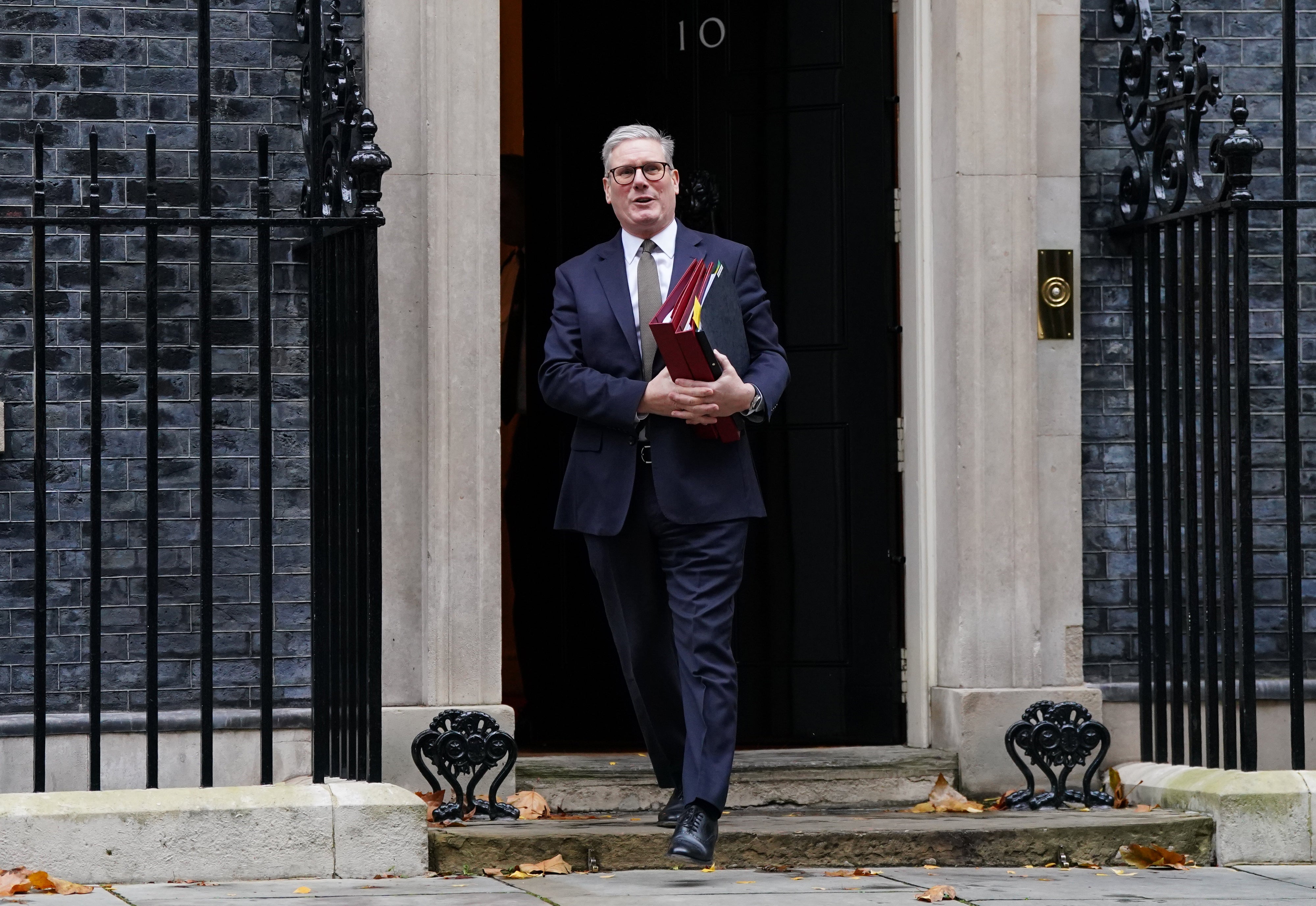Blairites are in despair over Keir Starmer’s flailing leadership
A person close to the former PM said the current government is like a bunch of unimaginative ‘librarians and academics’ but, writes John Rentoul, for some Starmer is not just a librarian or an academic but a funeral director
Someone close to Tony Blair says that Keir Starmer’s problem, apart from the fact that his ministers and aides are not very good, is that they are “a bunch of librarians and academics in charge of a government”.
This may be unfair to librarians and academics, but we know what is meant. I am told that this person thinks that Starmer’s government is unimaginative and out of touch; that it lacks the “dexterity” to manage the daily crises that besiege 10 Downing Street, and that there isn’t much diversity of thought at the top of government, that “they all think the same”.
There is a plodding, bookish other-worldliness about the government that worries a lot of Blairites – although Blair himself remains sphinx-like in his inscrutability.
Some of his acolytes say that although Starmer’s aides admire the prime minister’s ruthlessness, they are confusing ruthless sackings (Sue Gray, Louise Haigh) and the macho adoption of hardcore “Blairite” positions (such as on immigration) with a clear sense of purpose communicated to the public and pursued single-mindedly.
Not that “the Blairites” are a united bloc. Many of them, indeed, are working for Starmer. Morgan McSweeney, his most important adviser, is no conventional Blairite, but he has Peter Mandelson’s blessing as a tough centrist operator. Matthew Doyle, Starmer’s head of communications, has been with him for years and is New Labour through and through. The cabinet is stuffed with Blairites: Pat McFadden, Wes Streeting, Liz Kendall, Peter Kyle, Steve Reed, Ian Murray, Angela Smith (the leader in the Lords) and now Heidi Alexander, the new transport secretary.

Reinforcements have been drafted in since the election: Jonathan Powell, Blair’s former chief of staff, is national security adviser, and Liz Lloyd, Powell’s former deputy, is in charge of “delivery” in No 10. Alan Milburn and Michael Barber, the two people who did the most to improve public services in the Blair years, are advising on how to repeat their success.
And yet the policies that define the new government seem shot through with an unmistakable Old Labour streak. A huge employment rights bill that threatens to calcify Britain’s flexible labour market. The tax on private school fees. A tax on family farms. Above all the big tax rise on employers. One Blairite observer said the Starmer government seemed stuck on the playlist of Old Labour tunes: “They are only listening to classic Seventies pop – they don’t seem to have realised that Spotify has changed the world of music.”
There are so many CEOs who felt that the Budget was a slap in the face. They were wooed by Starmer and Rachel Reeves and believed them when they said that the “changed Labour Party” was pro-business as well as pro-worker – which was a very Blairite elision of the contradiction between the two. But now they feel betrayed.
The sophisticated response is to ask: were they not paying attention? Did they not realise that the fiscal position was unsustainable going into the election and that Reeves had boxed herself in with promises on tax that would have to be broken? Maybe they did, on one level, which only makes the feeling worse that they have been played for fools.
And Reeves would address the same response to her Blairite critics that she deploys against the Conservatives who criticise her for breaking her promise not to raise taxes “on working people”. She starts by relying on the sophistry of employers’ national insurance not being a tax on the bottom line of a payslip, but her more effective response is simply to ask: what would you do?
Rishi Sunak had no answer in his response to the Budget, and Kemi Badenoch now retreats into a rather Blairite approach of setting out “general principles” rather than policy detail.
Those around Blair don’t have much of an answer either. “Tony would never have done that,” they say, about private schools, winter fuel, farms and employers’ national insurance. Yet they agree that Labour was right to rule out general tax rises before the election – so what taxes would they raise, and what spending would they cut?
The answer is not clear, but the sense of disappointment with Starmer remains palpable. Maybe the tax rise was unavoidable, but it could have been sold better, and instead of being accompanied by taking money away from pensioners on £12,000 a year, the symbolic gesture of fiscal rectitude could have been, say, to make the winter fuel payment taxable and to put higher taxes on expensive cars and air travel.
Above all, what some Blairites fear is that Starmer lacks the ability to communicate a sense of hope – that the work of his government will be organised around delivering just two or three believable improvements in people’s lives. Instead, as Ian Leslie, the cultural commentator, observes about the election: “What have been the three biggest political debates since then, all initiated by the government? Means-testing of the winter fuel allowance for pensioners, inheritance tax for farmers, and assisted dying. Ageing, death, death.”
For some Blairites – I don’t think Leslie will mind being called a Blairite – the prime minister is not just a librarian or an academic but a funeral director.
Join our commenting forum
Join thought-provoking conversations, follow other Independent readers and see their replies
Comments
Bookmark popover
Removed from bookmarks